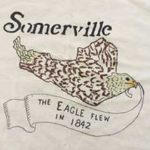
Eagle Feathers #278 –Home, Home on the Range
By Bob (Monty) Doherty
Somerville has been a home on the range since 1628 when she was part of Charlestown. Before the European settlement of what is now her Mystic waterfront, nature ruled her shore. Rich green meadows of grass as tall as the observer first caught the explorer’s eye.
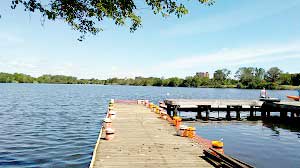
At that time, there were mammals and birds which are seldom seen today east of Route 495. Because of extinction, there are some we will never see again i.e., the Great Auk, a large penguin-related bird, the Grey Wolf, and clouds of Passenger Pigeons which once flew blackening out the sun for hours.
The area was abundant with marine life. Whales were hunted in Massachusetts Bay, while lobsters were trapped off shore and shellfish were easily harvested along the Mystic’s shore line. Somerville was a land of the small animal – the otter, the weasel, the porcupine, the beaver and the mink. It was also a land of the large animal – the moose, the deer, the wolf and the bear.
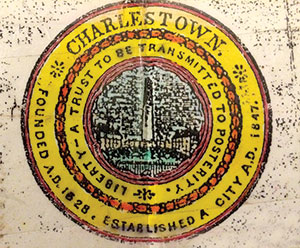
The original roads built beyond the Charlestown/Somerville line resembled a turkey’s claw radiating in shape into:
- Today’s Washington Street or “The Road to Newtowne” which headed South West toward Harvard Square
- Somerville Avenue or “Milk Row” which headed West toward “Menotomy”/Arlington
- Broadway or “Winter Hill Road” which headed North West toward today’s Medford.
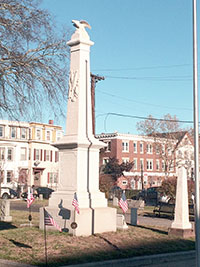
In the late 1600’s new settlers referred to the area between these roads as The Range. Paths or range ways as they were called, were staked out between these early roads into 1 1/4 mile lots separated into numbered range-ways. These matched the streets or avenues of today’s Franklin, Cross, Walnut, School, Central, Lowell, Cedar, Willow, Curtis, and North. Into the late 1800’s, many of these range ways were still simply ruts and hollows. This was early Somerville, the first “Home on the Range” and home of the “Rangers.”
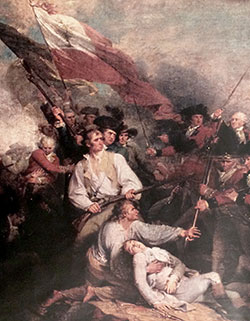
Colonel Thomas Knowlton, namesake of east Somerville’s Knowlton Street and Knowlton’s Rangers, was a veteran of the French and Indian War and the Battle of Bunker Hill. He began the first American Army Ranger battalion of which heroic Nathan Hale was one of his captains. Hale is known for his famous statement, “I regret that I have but one life to lose for my country.” The Rangers training was on Winter Hill, and General Washington drew on this unit which today is considered the forerunner of the American Special Forces.
After covering the retreat from the Battle of Bunker Hill, former Rogers Ranger Colonel John Stark remained in command at Winter Hill until the evacuation of the British in 1776. Seventeen months later, under his command as a General, his troops won the Battle of Bennington in Vermont.
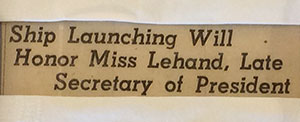
Somerville native Missy LeHand was Franklin Delano Roosevelt’s private secretary for over 21 years. She respected and guarded him, and she knew his favorite song. It was the classic western, Home on the Range. Because of this, the song went widely popular during the 1930s, and it is said that when President Roosevelt died, the song was played on the radio much of the day.
In 1926 boxing promoter and president of the Madison Square Garden, George Lewis “Tex” Rickard, was granted a franchise from the National Hockey League for his team. This team went on to win the Stanley Cup three times in its first fourteen years. Because of his name, the press and media called this team Tex’s Rangers. Some say his team was named after the tough Texas Rangers and the state he was raised in, but most think it was named after Tex himself. Either way, the New York Rangers were born. Two years later, Tex, New York’s king of hockey, went on to build the Boston Garden, the home of our Boston Bruins.
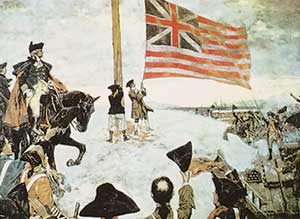
In late 1775, John Paul Jones hoisted the first United States ensign “The Grand Union Flag” ever displayed on an American Man-of-War at sea. After being promoted to Captain, he took charge of his new ship, the USS Ranger. It cruised around the British Isles, did great damage to British shipping, and dashed into British ports capturing five enemy vessels. It also defeated and captured the British Sloop-of-War Drake. Under different commanders, the USS Ranger went on to capture 24 more prizes during the American revolution.
Through the years, Home on the Range has been recorded by dozens of noted artists and in 1947 it became the state song of Kansas, where its author, Dr. Brewster Higley, was born. Many call it the Unofficial Anthem of the West, but in Somerville, we can acknowledge it as the Unofficial Anthem of the East.















Reader Comments